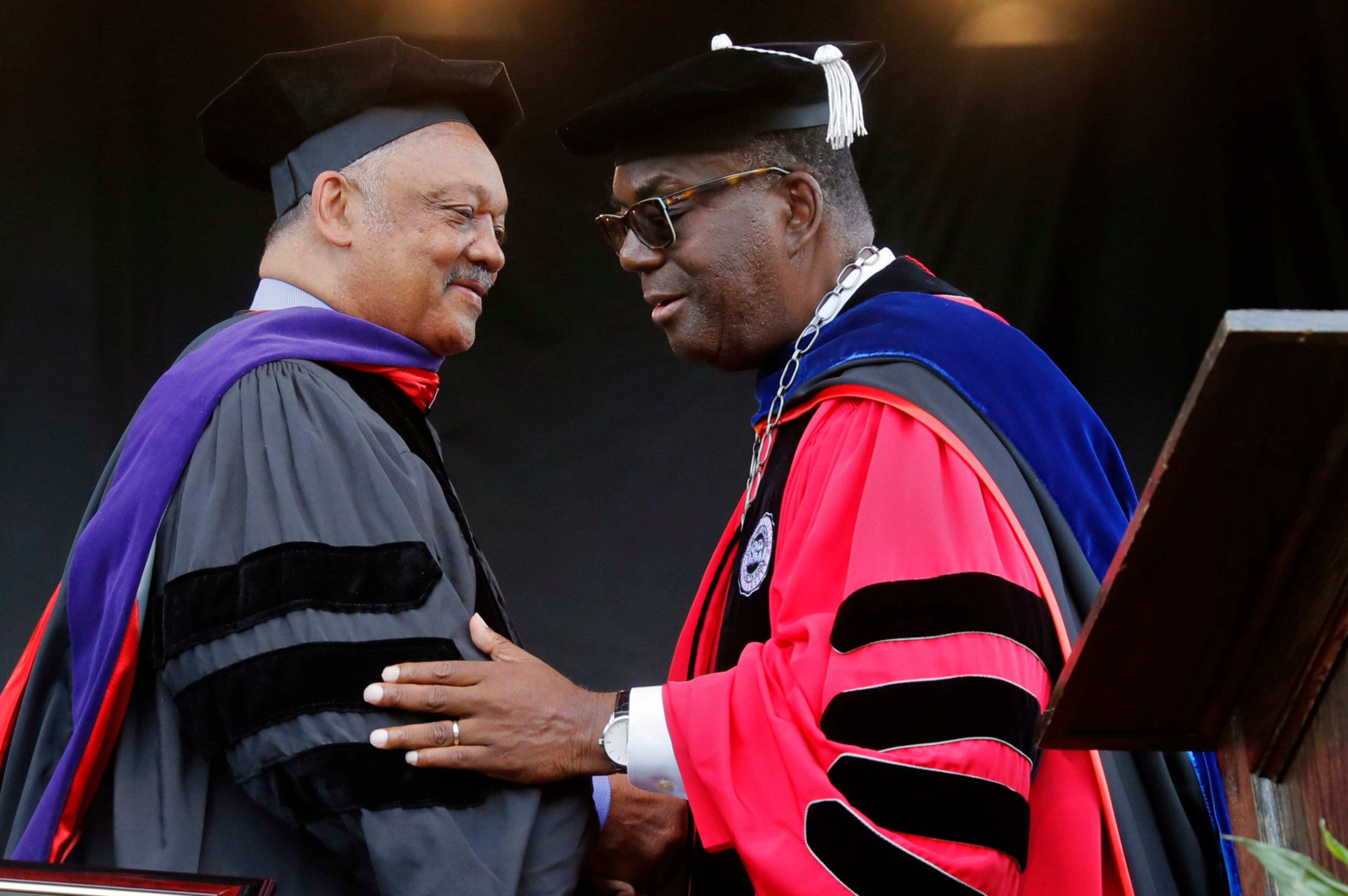Atlanta Morehouse graduate navigates increasing loan debt

When Morehouse College graduate Christopher Williams struggled to find employment after graduating in 2013, his mother began pulling funds from her retirement to go toward his first student loan payments. The monthly payments of $1,600 were about the cost of rent for a two-bedroom apartment in Atlanta.
After three years, Williams, who majored in English, found a job that paid well enough for him to contribute to the payments. It was a tough undertaking, but he was making progress toward paying down the debt he accrued over the four years of school.
In the eight years since graduation, Williams’ initial borrowed amount of $164,000 has increased to upwards of $200,000, despite not missing a single payment, he said. As the interest continues to accrue, so does the toll that repayment takes on his mental health.
“It’s amazing that we can do the right things, make the right steps, and still land ourselves in such debt,” Williams, 29, said.

Williams wasn’t the only student among his Morehouse peers to work his way through school with student loans. It’s a common route taken by graduates in Georgia, which has the third-highest average amount of student loan debt in the country, particularly among students at HBCUs. Research shows HBCU students borrow substantially greater amounts of federal loans than their non-HBCU peers, and HBCUs enroll more undergraduates from low-income families in need of loans to finance tuition.
The extent of Williams’ debt was something that he and his mother never imagined when they first began navigating his financial aid in 2009. When Williams’ financial aid package did not fully cover the cost of Morehouse’s then-$26,000 tuition and fees, he committed to both federal and private loans. It was a small price to pay to attend an institution that has served as a command post for changemakers, he said, and to continue his family’s legacy of attending HBCUs.
He suggested transferring to a state school to cut down on tuition costs during his sophomore year, but his mother urged him to stay. Williams is thankful that he did — hailing from a small, conservative city in California, attending an HBCU in Atlanta gave him the opportunity to explore his identity as a Black, queer creative in an environment of like-minded peers, he said.
“Though getting an education was important, it was more so a passport to allow me to explore parts of myself, explore the world around me, explore what it meant to be another person,” Williams said.
Williams knows acquiring student debt wasn’t the only way to have these experiences, but it felt like the only option presented to him at the time.
“I come from a Black family, and throughout our history in the U.S., the only way that we saw a form of liberation was through education,” Williams said. “I wish I could go back and start dismantling that idea, that folding yourself into a system that’s rigged against you isn’t going to help anything, and adding $100,000 of loans isn’t going to help that cause.”
The Biden administration has extended the pause on federal student loan payments through Sept. 30, which has benefitted Williams. But as lawmakers argue over proposals for student loan forgiveness, William waits for change to come.
“For those of us who did everything right, what’s next?” he said.



